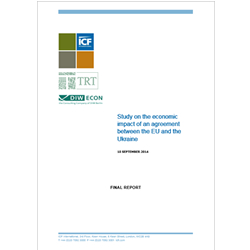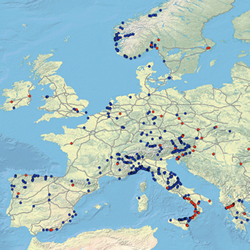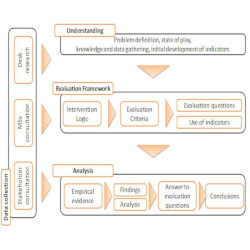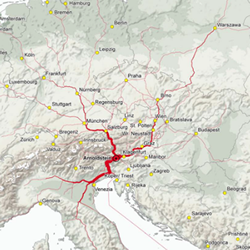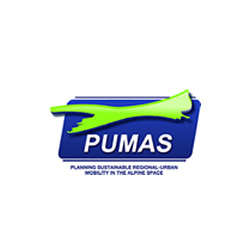- All
- African projects
- assessment
- assessment selected projects
- Assessment selected projects 2
- Assessment selected projects 3
- Assessment selected projects 4
- ASTRA
- Cost Benefit Analysis
- Electric mobility and ITS
- MOMOS
- planning
- planning selected projects
- planning selected projects 2
- planning selected projects 3
- planning selected projects 4
- planning selected projects 5
- projects
- Railways projects
- research
- research selected projects
- research selected projects 2
- research selected projects 3
- studies
- studies selected projects 1
- studies selected projects 2
- studies selected projects 3
- studies selected projects 4
- studies selected projects 5
- TRTingegneria
- TRUST
- urban mobility
- Update of the railways and logistic masterplan in the Verona area (Italy) The freight rail infrastructure and logistics masterplan in the Verona area (Italy) aims at providing a framework for the evaluation and design of the Isola della Scala intermodal terminal, in consideration of the economic and programmatic situation updated to year 2014. TRT is part of the working group and was responsible for the rail and road infrastructure systems analysis, related to both demand and supply.
- Study on the economic impact of an agreement between the EU and the republic of Turkey and between the EU and Ukraine This assignment identified and quantified the impacts expected from liberalisation of the market access for road freight transport arising from agreements that might be negotiated between the EU and Turkey and between the EU and Ukraine. The study provided the European Commission with an evidenced analysis of the prospective economic impacts of agreements between the EU and both Ukraine and Turkey in the area of road freight services, based on appraisal of a number of carefully specified scenarios of gradual liberalisation of such services.
- Study on the implementation and effects of Directive 2004/54/EC on minimum safety requirements for road tunnels in the trans-European road network The study assessed the state of implementation of the Directive 2004/54/EC and the state of the refurbishment works of the tunnels. The effects of the provisions on safety, environment and traffic were evaluated. The study also estimated the costs for the broadening of the scope of the Directive and collected best practices for the updating of its provisions.
- Study on the effectiveness and on the improvement of the EU legislative framework on road infrastructure safety management (Directive 2008/96/EC) The aim of the study was to assist the European Commission in the evaluation of Directive 2008/96 / EC on the management of road safety in all Member States and to examine possible changes in the light of new technological developments. Starting from a thorough survey with the national authorities, the study conducted: an ex post evaluation of the implementation of Directive 2008/96/EC by measuring the degree of implementation by Member States and the main impacts of its application on road safety; a preliminary analysis of the possible areas of improvement, in particular concerning the safety of pedestrians, cyclists and motorcyclists, vehicles and road infrastructures.
- Technical assistance related to public transport in the POLITE (POlicy Learning in Information Technologies for Public Transport Enhancement) project TRT supported the Province of Ferrara, partner of the POLITE project, in developing the following technical activities: analysis of ICT Best Practices in Local Public Transport, support in definition of ICT policies for Local Public Transport, technical expert support for sessions focused on transferring experiences, organization, management and participation at the training sessions of the project, technical expert support for implementation of measures at local level, development of effective planning tools for implementing best practices at local level.
- Milano-Brescia motorway (Brebemi) A joint project between private and public partners, Brebemi is the first motorway to be realised with project financing in Italy. As traffic consultant, TRT has been supporting BreBeMi since 1997 by taking care of all the project phases: from the pre-feasibility analysis until the last activities. Since the beginning, TRT provided technical support to the whole process: traffic demand analysis, revenue forecasts, economic and financial assessment. According to plans, the new motorway has been opened to traffic on July 2014.
- Development of a business plan, with main focus on the maritime freight traffic, concerning the activation of a new rail service connecting the Port of Venice (Italy) and Villach (Austria) The Venice Port Authority, partner of the Central Europe “Empiric” project, instructed TRT to develop a business plan, with main focus on the maritime freight traffic, concerning the activation of a new rail service between the Port of Venice and Villach. Objectives of the study were: analysing the market, detecting types and quantities of goods to be transported by new rail service as well as identify potential customers, identification of a possible MTO (Multimodal Transport Operator)interested in carry out the service and description of the possible logistics terminals that can be used, definition of a railway operation model with identification of usable infrastructure and slots as well as the frequency of the service and volume of freight, development of economic and financial analysis able to verify the pricing policies to be adopted for startup and maintenance of the service, the potential economic and financial resources in support of activities, the structural investments, the need for incentives for the implementation and maintenance of the service, implementation of an environmental balance analysis through the identification of appropriate environmental indicators.
- PUMAS – Planning Sustainable Regional Urban Mobility in the Alpine Space The PUMAS project is part of the wider territorial cooperation Programme “Alpine Space 2007-2013” which includes the Alpine region neighboring countries. PUMAS aims at testing and validating the methodology developed by the Eltis project (www.mobilityplans.eu) for the drafting of the sustainable mobility plans (SUMP). TRT provides technical assistance to the Venice Municipality, coordinator of the PUMAS project, by providing support in reporting, meeting and seminars organisation, communication and dissemination, drafting documents, evaluation and technical assistance to the seven pilot projects.
- Drafting of tender documents for the provision of urban Public Transport Services of city of Isernia TRT, within the procurement notice on the tender of the provision for urban public transport services, gave support to ATM Molise in the preparation of the technical offer. Activities were related to: territorial analysis, the reconnaissance of the status quo situation about the public transport (services and infrastructures), the identification of the network, lines and new stops, the construction of timetables and the calculation of service and accessibility indicators. Besides, the attention was focussed on the interventions to design the stops (platforms, poles, elimination of conflicts) and upgrade information to users (timetables, electronic displays, maps related to the urban mobility system).


